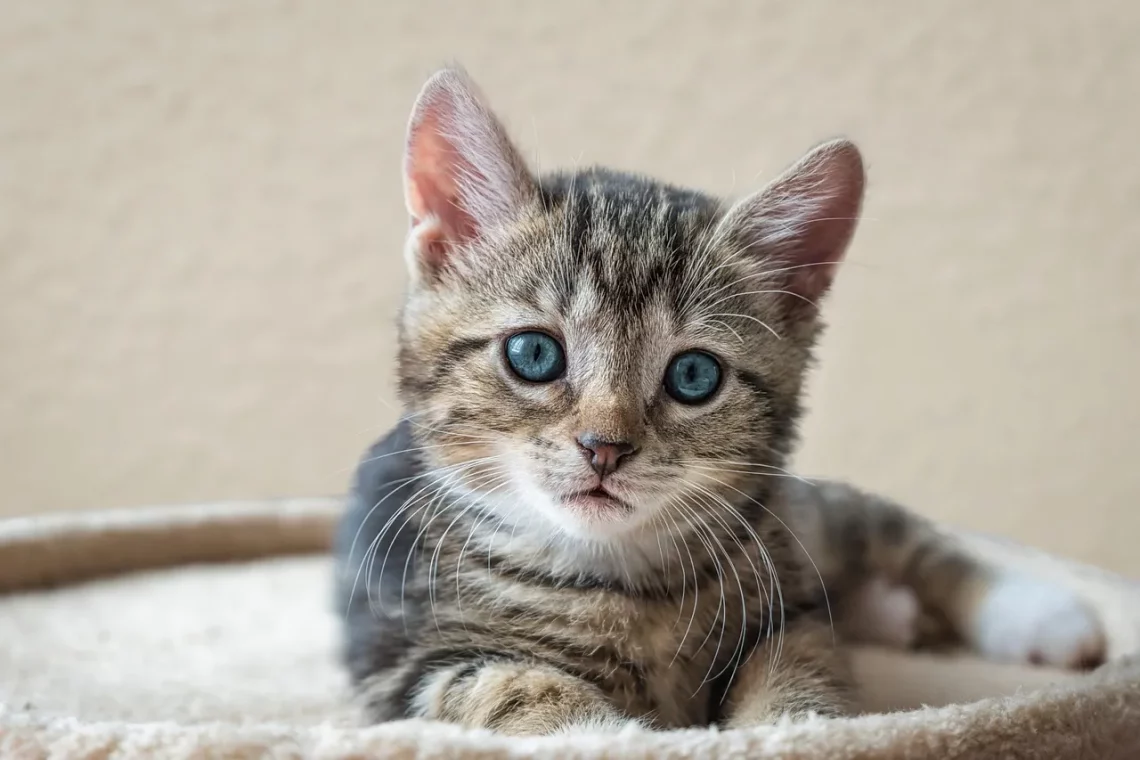
Caring for Your Ginger Tabby Kitten: Tips and Tricks for New Owners
Caring for a ginger tabby kitten can be an incredibly rewarding experience, as these little furballs are known for their playful personalities and affectionate nature. As a new owner, you might find yourself overwhelmed by the responsibilities that come with caring for a young pet. From choosing the right food to creating a safe environment, the journey of kitten ownership is filled with both challenges and joys. Ginger tabbies, with their distinctive orange coats and charming demeanor, have a unique set of needs that can differ from other cats. Understanding these needs is crucial for ensuring your kitten grows into a healthy and happy adult cat.
In addition to their physical care, ginger tabby kittens thrive on social interaction and mental stimulation. They are known to be curious and playful, requiring not just food and shelter, but also love and engagement from their human companions. As you embark on this journey, it is essential to equip yourself with the right knowledge and tools to provide the best possible care for your new furry friend. With the right approach, you can nurture your ginger tabby kitten into a loving and well-adjusted cat that brings joy to your household for years to come.
Creating a Safe Environment
When bringing a ginger tabby kitten into your home, the very first step is to create a safe and welcoming environment. Kittens are naturally curious creatures, and their inquisitive nature can often lead them into potentially hazardous situations. Therefore, it’s essential to kitten-proof your home before your new companion arrives.
Start by securing any loose wires, cords, or small objects that could be swallowed. Kittens are notorious for chewing on things they shouldn’t, so it’s wise to keep all electrical cords out of reach. Additionally, ensure that any toxic plants, chemicals, or substances are stored away safely, ideally in cabinets. Common household items such as cleaning supplies, certain essential oils, and even some human foods can be harmful to cats.
Next, designate a specific area in your home as the kitten’s safe space. This can be a cozy corner with a soft bed, toys, and a litter box. Having a designated area will help your kitten feel secure and allow it to explore its new surroundings at its own pace. It is crucial to provide a quiet and calm environment, particularly during the first few days, as your kitten adjusts to its new home.
In addition to physical safety, consider the emotional well-being of your ginger tabby. Kittens are social animals that thrive on interaction, so ensure the environment is not only safe but also stimulating. Provide a variety of toys, scratching posts, and climbing structures to keep your kitten entertained. Engaging in playtime will not only strengthen your bond but also help your kitten develop essential social skills.
Nutrition and Feeding Guidelines
Feeding your ginger tabby kitten a balanced and nutritious diet is vital for its growth and development. At this young age, kittens require a diet that is rich in protein, fats, and essential vitamins and minerals. Unlike adult cats, kittens have higher energy needs due to their rapid growth and playful nature.
When selecting food for your ginger tabby, choose high-quality kitten food that is specifically formulated for their unique nutritional requirements. Look for products that list meat as the primary ingredient, as this will provide the necessary protein for muscle development. Additionally, ensure the food contains DHA, an essential fatty acid that supports brain development and overall health.
Kittens typically require multiple small meals throughout the day. Aim for three to four meals, gradually transitioning to two meals per day as they grow older. Always provide fresh water to keep your kitten hydrated, as proper hydration is crucial for overall health.
Be mindful of portion sizes, as overfeeding can lead to obesity, which can cause various health issues later in life. Consult with your veterinarian to determine the appropriate feeding guidelines based on your kitten’s age, weight, and activity level. They can also provide advice on transitioning to adult food when the time comes.
Lastly, keep an eye on your kitten’s appetite and weight. Sudden changes in eating habits can be indicative of underlying health issues. If you notice any drastic shifts, consult with your veterinarian promptly.
Socialization and Behavioral Training
Socialization is a critical aspect of raising a ginger tabby kitten. Early social experiences can significantly affect a cat’s behavior and temperament in adulthood. It’s essential to expose your kitten to various environments, sounds, and people to help it develop confidence and adaptability.
Start by introducing your kitten to different rooms in your home. Allow it to explore and become familiar with its surroundings. Gradually introduce new experiences, such as car rides or visits to friends or family. Ensure these experiences are positive by providing treats and praise, allowing your kitten to associate novelty with good things.
Another important aspect of socialization is interaction with other pets. If you have other animals, introduce them to your kitten slowly and under supervision. Monitor their interactions closely to ensure that everyone feels safe and comfortable. This will help foster positive relationships and reduce the likelihood of territorial disputes later on.
Training your ginger tabby is equally essential. Start with basic commands like “sit” or “come” using positive reinforcement techniques. Reward your kitten with treats or affection when it responds correctly. This method not only helps establish good behavior but also strengthens the bond between you and your furry friend.
Remember to be patient and consistent. Kittens are still learning about their environment and themselves, so occasional mishaps are expected. Rather than punishing undesirable behavior, redirect your kitten’s energy towards appropriate activities, like scratching posts instead of furniture.
Health Care and Regular Veterinary Visits
Maintaining the health of your ginger tabby kitten requires regular veterinary care and vaccinations. From the moment you welcome your kitten home, prioritize a visit to the veterinarian for a comprehensive health check. This initial visit will establish a baseline for your kitten’s health and allow the vet to recommend a vaccination schedule tailored to your kitten’s needs.
Vaccinations are crucial for protecting your kitten from common feline diseases, and your veterinarian will provide guidance on which shots are necessary and when they should be administered. Additionally, discuss preventive care options, such as flea and tick treatments, as well as deworming protocols.
Regular check-ups are essential as your kitten grows. Annual veterinary visits will help monitor its health and allow for early detection of any potential issues. During these visits, your vet can assess your kitten’s growth, dental health, and overall well-being.
Another important health aspect is spaying or neutering your kitten. This procedure is typically recommended when the kitten reaches a certain age and can prevent unwanted litters, reduce the risk of certain health issues, and mitigate behavioral problems.
Lastly, pay attention to your kitten’s behavior and physical appearance at home. Monitor its eating habits, litter box usage, and activity levels. Any significant changes should be reported to your veterinarian, as they can be indicative of health concerns.
**Disclaimer: This article is for informational purposes only and is not intended as medical advice. For any health issues or concerns regarding your pet, please consult a qualified veterinarian.**




